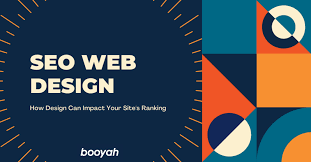The Power of SEO Tools in Digital Marketing
The Power of SEO Tools in Digital Marketing
Search Engine Optimization (SEO) has become a crucial aspect of digital marketing strategies for businesses looking to enhance their online presence and reach their target audience effectively. In the world of SEO, having the right tools at your disposal can make a significant difference in improving your website’s visibility and ranking on search engine results pages.
SEO tools are designed to help marketers and website owners analyse, optimize, and monitor their websites’ performance in search engines. These tools come in various forms and functionalities, each serving a specific purpose in enhancing the overall SEO strategy. From keyword research to backlink analysis, here are some essential SEO tools that every digital marketer should consider:
Keyword Research Tools
Keyword research is the foundation of any successful SEO strategy. Tools like SEMrush, Ahrefs, and Google Keyword Planner help identify relevant keywords with high search volume and low competition. By targeting the right keywords, businesses can attract more organic traffic to their websites.
On-Page SEO Tools
On-page SEO tools like Yoast SEO and Moz Pro provide insights into optimizing individual web pages for search engines. These tools offer suggestions for improving meta tags, headings, content structure, and internal linking to enhance a website’s visibility in search results.
Backlink Analysis Tools
Backlinks are crucial for building authority and credibility for a website. Tools such as Majestic and Ahrefs allow marketers to analyse their backlink profile, identify high-quality backlinks, and monitor competitors’ link-building strategies to improve their own link-building efforts.
Site Audit Tools
Site audit tools like Screaming Frog and Sitebulb help identify technical issues that may affect a website’s performance in search engines. These tools scan websites for errors, broken links, duplicate content, and other issues that could hinder SEO efforts.
In conclusion, leveraging the power of SEO tools is essential for implementing an effective digital marketing strategy that drives organic traffic and boosts online visibility. By using the right combination of tools tailored to your specific needs, businesses can stay ahead of the competition and achieve sustainable growth in the ever-evolving digital landscape.
Maximising Digital Visibility: 24 Key Questions Answered on SEO Tools and Techniques
- What are the 5 SEO elements?
- What is the best SEO Checker tool?
- What is small SEO tools?
- Is there any free SEO tool?
- Which is best tool for SEO?
- What is the best SEO tool for a website?
- What is the best paid SEO tool?
- What is the best tool for SEO?
- What are SEO techniques?
- Is there a free SEO tool?
- What is Moz SEO tool?
- Which is the best free SEO tool?
- Do I need an SEO tool?
- What is the most popular SEO tool?
- What SEO tools do I need?
- Which tool is best for SEO?
- What are the 4 types of SEO?
- What is simple SEO tool?
- Is Google an SEO tool?
- What is SEO tools?
- What is advanced SEO tools?
- What is SEO and how it works?
- What SEO tools are best?
- What is the best SEO tool to use?
What are the 5 SEO elements?
When it comes to SEO, there are five key elements that play a crucial role in determining a website’s visibility and ranking on search engine results pages. These elements include on-page SEO, which focuses on optimizing individual web pages with relevant keywords and meta tags; off-page SEO, which involves building high-quality backlinks to establish authority and credibility; technical SEO, which addresses website structure, speed, and other technical aspects for optimal performance; content quality, where engaging and relevant content is essential for attracting and retaining visitors; and user experience (UX), ensuring that the website is user-friendly and easy to navigate. Mastering these five SEO elements is fundamental in creating a strong foundation for a successful digital marketing strategy.
When it comes to selecting the best SEO Checker tool, there are several factors to consider to ensure it aligns with your specific needs and goals. Different tools offer varying features such as keyword analysis, backlink monitoring, site audits, and competitor analysis. Popular options like SEMrush, Ahrefs, Moz Pro, and Google Search Console are often recommended for their comprehensive insights and user-friendly interfaces. Ultimately, the best SEO Checker tool for you will depend on your budget, level of expertise, and the specific aspects of SEO you aim to improve. Conducting thorough research and testing different tools can help you find the one that best suits your requirements and helps enhance your website’s search engine performance effectively.
Small SEO Tools is a popular online platform that offers a wide range of free SEO tools to help website owners, digital marketers, and content creators improve their online presence. From keyword research and plagiarism checking to backlink analysis and website auditing, Small SEO Tools provides easy-to-use tools that assist users in optimizing their websites for search engines. With its user-friendly interface and comprehensive features, Small SEO Tools has become a go-to resource for those looking to enhance their SEO strategies without breaking the bank.
In response to the frequently asked question, “Is there any free SEO tool?”, the answer is yes, there are several free SEO tools available that can help businesses improve their online visibility without incurring additional costs. Popular free SEO tools include Google Analytics for website analytics, Google Search Console for monitoring website performance in search results, and Ubersuggest for keyword research. While these tools may have limitations compared to their paid counterparts, they still offer valuable insights and functionalities that can aid in enhancing a website’s SEO strategy effectively.
When it comes to determining the best tool for SEO, the answer largely depends on individual needs and preferences. There is a wide array of SEO tools available in the market, each offering unique features and functionalities to assist with different aspects of search engine optimisation. Some popular choices among digital marketers include SEMrush, Ahrefs, Moz Pro, and Google Search Console. These tools are renowned for their comprehensive keyword research capabilities, backlink analysis tools, on-page SEO suggestions, and performance tracking metrics. Ultimately, the best tool for SEO is one that aligns with your specific goals and requirements, helping you achieve optimal results in improving your website’s visibility and ranking on search engine results pages.
When it comes to choosing the best SEO tool for a website, the answer may vary depending on specific needs and goals. Many digital marketers consider tools like SEMrush, Ahrefs, Moz Pro, and Google Search Console to be among the top choices for comprehensive SEO analysis and optimization. SEMrush offers a wide range of features for keyword research, competitor analysis, and site auditing. Ahrefs is renowned for its backlink analysis capabilities, while Moz Pro provides valuable insights into on-page SEO optimization. Google Search Console, a free tool by Google, is essential for monitoring website performance in search results. Ultimately, the best SEO tool for a website is one that aligns with the business objectives and helps improve overall search engine visibility effectively.
When it comes to the best paid SEO tool, the answer can vary depending on specific needs and preferences. However, several top contenders consistently stand out in the industry. Tools like SEMrush, Ahrefs, and Moz Pro are often regarded as some of the best paid SEO tools available. These platforms offer a wide range of features, including keyword research, backlink analysis, site auditing, and competitor analysis, making them invaluable assets for digital marketers looking to enhance their SEO efforts. Ultimately, the best paid SEO tool is one that aligns with your business goals and provides the necessary insights and data to drive impactful results in your search engine optimisation strategies.
When it comes to the frequently asked question, “What is the best tool for SEO?” the answer may vary depending on individual needs and preferences. There is a wide range of SEO tools available in the market, each offering unique features and functionalities to help improve website visibility and search engine ranking. Some popular choices among digital marketers include SEMrush, Ahrefs, Moz Pro, and Google Search Console. These tools are renowned for their comprehensive keyword research capabilities, backlink analysis, on-page optimization suggestions, and performance tracking metrics. Ultimately, the best tool for SEO is one that aligns with your specific goals and provides actionable insights to enhance your digital marketing strategy effectively.
What are SEO techniques?
SEO techniques refer to a set of strategies and practices used to improve a website’s visibility and ranking on search engine results pages. These techniques encompass a wide range of activities, including keyword research, on-page optimization, link building, content creation, and technical SEO. By implementing effective SEO techniques, businesses can attract more organic traffic, enhance user experience, and ultimately drive conversions. Successful SEO techniques involve staying updated with search engine algorithms, understanding user intent, and creating valuable and relevant content that resonates with both users and search engines.
When it comes to SEO tools, one frequently asked question is, “Is there a free SEO tool?” The answer is yes, there are several free SEO tools available that can be valuable for improving your website’s search engine performance. While some free tools may have limitations compared to their paid counterparts, they still offer essential features such as keyword research, on-page analysis, and backlink monitoring. Utilising these free SEO tools can be a great starting point for businesses looking to enhance their online presence without incurring additional costs.
The Moz SEO tool is a comprehensive platform designed to assist digital marketers and website owners in improving their search engine optimization efforts. Moz offers a range of features, including keyword research, on-page optimization suggestions, backlink analysis, and site auditing capabilities. By utilising the Moz SEO tool, users can gain valuable insights into their website’s performance in search engines and implement data-driven strategies to enhance their online visibility and ranking. With its user-friendly interface and powerful analytics, Moz is a trusted resource for those looking to boost their SEO efforts effectively.
When it comes to the frequently asked question, “Which is the best free SEO tool?” many digital marketers and website owners often seek a comprehensive yet cost-effective solution to enhance their SEO efforts. While there are numerous free SEO tools available in the market, one tool that consistently stands out for its versatility and functionality is Google Search Console. This tool provides valuable insights into a website’s performance on Google search, including keyword rankings, click-through rates, and indexing issues. With its user-friendly interface and powerful features, Google Search Console remains a popular choice for those looking to improve their website’s visibility and ranking in search engine results pages without breaking the bank.
For businesses and website owners looking to improve their online visibility and drive organic traffic, investing in an SEO tool can be highly beneficial. An SEO tool provides valuable insights and data that help in analysing website performance, identifying opportunities for improvement, and tracking progress over time. With the ever-changing landscape of search engine algorithms and digital marketing trends, having an SEO tool at your disposal can streamline the optimisation process and ensure that your website remains competitive in search engine results. While it is possible to manage some aspects of SEO manually, an SEO tool can significantly enhance efficiency and effectiveness in implementing a robust SEO strategy tailored to your specific goals and objectives.
When it comes to the most popular SEO tool, there is no definitive answer as preferences vary among digital marketers and website owners. However, some widely acclaimed SEO tools that are frequently mentioned include SEMrush, Ahrefs, Moz Pro, and Google Analytics. These tools offer a range of features such as keyword research, backlink analysis, site audits, and performance tracking to help users improve their website’s visibility and ranking on search engine results pages. Ultimately, the choice of the most popular SEO tool depends on individual needs and objectives in implementing a successful SEO strategy.
When considering the essential SEO tools needed to enhance your digital marketing efforts, it is crucial to identify those that align with your specific goals and objectives. Some fundamental SEO tools that are widely recommended include keyword research tools such as SEMrush and Google Keyword Planner for identifying relevant keywords, on-page SEO tools like Yoast SEO for optimizing web page content, backlink analysis tools such as Ahrefs for monitoring and improving link profiles, and site audit tools like Screaming Frog for identifying technical issues. By selecting a combination of these tools tailored to your requirements, you can effectively boost your website’s visibility and ranking in search engine results pages.
When it comes to determining the best tool for SEO, the answer largely depends on the specific needs and goals of the user. There is a wide range of SEO tools available in the market, each offering unique features and functionalities tailored to different aspects of search engine optimization. Popular choices include SEMrush, Ahrefs, Moz Pro, and Google Keyword Planner. While some tools excel in keyword research and analysis, others focus on backlink monitoring or site audit capabilities. Ultimately, the best tool for SEO is one that aligns with the user’s requirements, budget constraints, and overall digital marketing strategy. Conducting thorough research and testing various tools can help individuals or businesses identify the most suitable option to enhance their SEO efforts effectively.
What are the 4 types of SEO?
When it comes to Search Engine Optimization (SEO), there are four main types that businesses and digital marketers should be aware of. These include on-page SEO, off-page SEO, technical SEO, and local SEO. On-page SEO focuses on optimizing individual web pages to improve search engine rankings and attract organic traffic. Off-page SEO involves building external links and promoting a website through social media and other channels to enhance its authority. Technical SEO deals with the backend elements of a website, such as site speed, mobile-friendliness, and structured data markup. Lastly, local SEO targets local search results by optimizing a business’s online presence for specific geographic locations. Understanding these four types of SEO is essential for creating a comprehensive strategy that boosts visibility and drives traffic to websites.
A simple SEO tool is a user-friendly software or platform designed to assist individuals and businesses in improving their website’s search engine optimisation without the need for extensive technical knowledge. These tools typically offer basic features such as keyword analysis, on-page SEO suggestions, and site performance monitoring in a straightforward and easy-to-understand manner. Simple SEO tools are ideal for beginners or small businesses looking to enhance their online visibility and drive organic traffic to their websites without the complexity often associated with more advanced SEO tools.
When discussing SEO tools, a common question that arises is whether Google itself can be considered an SEO tool. While Google provides a range of tools and resources that can aid in SEO efforts, such as Google Analytics, Google Search Console, and Google Keyword Planner, it is not typically classified as a dedicated SEO tool. Instead, Google’s suite of products serves to provide valuable insights into website performance, keyword data, and search engine visibility. Marketers often utilise these tools alongside specialised SEO tools to enhance their strategies and improve their website’s ranking on search engine results pages.
SEO tools refer to a diverse range of software and online platforms designed to assist digital marketers and website owners in improving their search engine optimization strategies. These tools are instrumental in analysing website performance, conducting keyword research, monitoring backlinks, and auditing site health. By utilising SEO tools effectively, businesses can enhance their online visibility, drive organic traffic, and ultimately improve their search engine rankings. These essential tools play a pivotal role in shaping successful digital marketing campaigns by providing valuable insights and data-driven solutions to optimise websites for better search engine results.
Advanced SEO tools refer to a sophisticated set of digital instruments and software designed to provide in-depth analysis, strategic insights, and advanced functionalities for optimising a website’s search engine performance. These tools go beyond basic SEO practices and offer advanced features such as competitor analysis, keyword clustering, predictive analytics, and custom reporting. By utilising advanced SEO tools, digital marketers can gain a deeper understanding of their website’s SEO landscape, identify new opportunities for improvement, and implement data-driven strategies to enhance their online visibility and ranking on search engine results pages.
What is SEO and how it works?
Search Engine Optimization (SEO) is a fundamental digital marketing strategy aimed at improving a website’s visibility and ranking on search engine results pages. SEO works by optimising various aspects of a website, such as content, keywords, and backlinks, to make it more relevant and authoritative in the eyes of search engines like Google. By implementing SEO techniques effectively, businesses can attract organic traffic from users searching for relevant products or services online. SEO involves continuous monitoring, analysis, and adjustment to stay ahead of algorithm changes and competitors in order to achieve sustainable growth and success in the competitive online landscape.
When it comes to determining the best SEO tools for your digital marketing needs, the answer can vary depending on your specific requirements and objectives. Some popular choices among marketers include tools like SEMrush, Ahrefs, Moz Pro, and Google Analytics. These tools offer a range of functionalities such as keyword research, backlink analysis, on-page optimization, and performance tracking. Ultimately, the best SEO tools are those that align with your goals and provide actionable insights to improve your website’s visibility and ranking on search engine results pages. It’s essential to explore different options, consider your budget and skill level, and select tools that complement your SEO strategy effectively.
When it comes to the frequently asked question, “What is the best SEO tool to use?” the answer may vary depending on individual needs and preferences. There is a wide range of SEO tools available in the market, each offering unique features and functionalities to enhance search engine optimization efforts. Popular options like SEMrush, Ahrefs, Moz Pro, and Google Search Console are often recommended for their comprehensive suite of tools for keyword research, backlink analysis, on-page optimization, and performance tracking. Ultimately, the best SEO tool for you will depend on your specific goals, budget constraints, and the aspects of SEO you prioritise in your digital marketing strategy. It’s essential to explore different tools, consider your requirements carefully, and choose one that aligns best with your objectives to maximise the effectiveness of your SEO campaigns.



